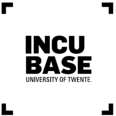As a graduate of the Master’s in Applied Mathematics, specialised in Mathematics of Data Science, you will benefit from excellent career opportunities. There is a great demand for skilled data scientists in virtually any sector, and your in-depth knowledge of the underlying mathematics and your ability to solve complex problems gives you an edge in the current job market. Instead of pursuing a professional career as a data scientist right away after obtaining your master’s, you can also opt to follow a PhD- or EngD-programme. Are you a real entrepreneur? You might also start up your own business in the future!
Type of degree
When you have finished this Master's with the specialisation in Mathematics of Data Science, you will receive a Master’s degree in Applied Mathematics. Also, you can title yourself Master of Science (MSc). Your specialisation will be mentioned specifically on your diploma supplement, highlighting your specialised knowledge and skills in mathematics of data science.
Job opportunities
Since this Master’s offers you broad foundational knowledge at the intersection of Computer Science, Mathematics, and Domain Knowledge, as a graduate of this specialisation you will be equipped to enter any area of data science.
From software developer to system engineer and from technical consultant to data analyst: the types of jobs graduates went on to fulfil are highly diverse. One might focus on using deep learning and other advanced methods for complex data assimilation problems like weather forecasting, whereas another graduate’s career is centred on developing digital risk solutions. Whichever career path you choose, your job prospects are excellent, since expert mathematicians are needed in many organisations (e.g. financial institutions, high-tech companies, engineering and consultancy firms, or medtech companies). Graduates of this specialisation currently work at organisations including ASML, Witteveen+Bos, Thales, Nedap, CapGemini, Deloitte, ABN AMRO, Kinase and Topicus, to name some examples.
Start a business
Do you have a great business idea? At the University of Twente, you can turn it into reality! At UT, we highly encourage entrepreneurship. In fact, with over 1,000 start-ups to its name, UT is recognised as one of the most entrepreneurial universities in the Netherlands. Did you know that big international companies like Booking.com and Just Eat Takeaway were once founded by students of UT? We are keen to put your scientific knowledge to practical use in solutions that people and society need. Your innovative ideas, creativity and the courage to put in the extra mile will be rewarded. As a catalyst for meaningful entrepreneurship, we offer you the Novel-T foundation and their start-up hub Incubase on campus.
Former students have gone before you. For example, one of the founders of the leading sports analytics company SciSports is a graduate of the Master’s in Applied Mathematics. Or you might start up your own consultancy company, like one of our other graduates did.
Post-master opportunities
Instead of pursuing a professional career right after obtaining your Master’s degree, you can opt for an academic career by completing a PhD or an EngD. An EngD programme is more practically oriented and aligned with direct problem solving and addressing design needs of a particular industry whereas a PhD programme is more focused on research. You can follow both types of programmes at the Twente Graduate School (TGS).
Continue as a researcher: obtain a PhD
A PhD (Doctor of Philosophy) entails studying and carrying out research in a particular area for a period of four years. You can do this within one of our research groups or our structured PhD programmes. An integral part of a PhD is writing your PhD thesis and presenting and defending your research publicly. Obtaining a PhD gives you the title Doctor (Dr).
Follow an EngD programme
You can also choose to follow an EngD programme after graduation. Such a programme usually takes two years and prepares you to become a high-level technological designer. Upon successful completion, you will receive a certified diploma and the academic degree title Professional Doctorate in Engineering (EngD).

